I'd like to know if the absence of element ordering of the Python's built-in set structure is "random enough". For instance, taking the iterator of a set, can it be considered a shuffled view of its elements?
(If it matters, I'm running Python 2.6.5 on a Windows host.)
